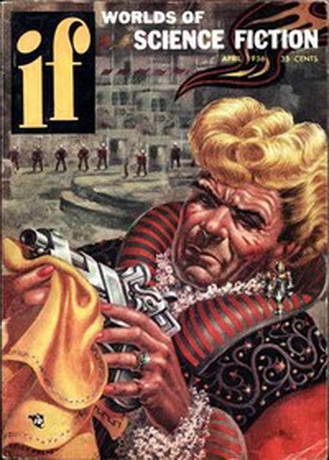Human Error By: Raymond F. Jones (1915-1994) |
|---|

Human Error by Raymond F. Jones is an enthralling science fiction novel that immerses readers in a thought-provoking exploration of human fallibility and its consequences. From the very beginning, the author expertly captures the readers' attention through an engaging and fast-paced narrative.
The novel introduces us to a world where advanced artificial intelligence (AI) systems have become an integral part of human life. These AIs are tasked with managing various aspects of society, from transportation to healthcare, promising to eradicate human error and ensure a harmonious existence. However, with the introduction of a new prototype AI named "Computer Control," things take an unexpected turn.
Jones skillfully constructs a multi-layered plot that seamlessly weaves together intriguing subplots and character development. The narrative is filled with intricate twists and turns, leaving readers hanging in anticipation of what will happen next. The author's ability to maintain suspense throughout the story is commendable, making it difficult to put the book down.
One of the book's strongest aspects is its exploration of the consequences of relying excessively on technology. Jones raises pertinent questions about the potential dangers of becoming too dependent on AI systems, and how our inherent human imperfections might still have a place in a technologically advanced world. This theme is cleverly interwoven with the personal journeys of the characters, allowing readers to empathize with their struggles and dilemmas.
The characterization in Human Error is skillfully executed, with each character feeling authentic and relatable. Their strengths and flaws are portrayed with great depth, enabling readers to form emotional connections with the protagonists. The dialogue exchanges are natural, adding a layer of realism to the story.
Additionally, Jones exhibits a strong grasp of scientific concepts, seamlessly incorporating them into the narrative without overwhelming the reader. This attention to detail enhances the plausibility of the story and highlights the author's expertise in the genre.
However, while Human Error excels in many areas, there are moments where the pacing feels slightly rushed. Certain plot developments occur abruptly, leaving readers wanting more elaboration or a smoother transition. Additionally, the ending, while satisfying in its resolution, may leave some readers desiring a more profound exploration of the moral and philosophical questions raised throughout the novel.
Overall, Human Error is a captivating science fiction novel that will resonate with readers who enjoy thought-provoking narratives that navigate the complexity of human nature and its intricate relationship with technology. Raymond F. Jones delivers a suspenseful and engaging story, filled with fascinating concepts and well-developed characters. Despite a few minor pacing issues, this book is a worthy addition to any science fiction fan's collection. |